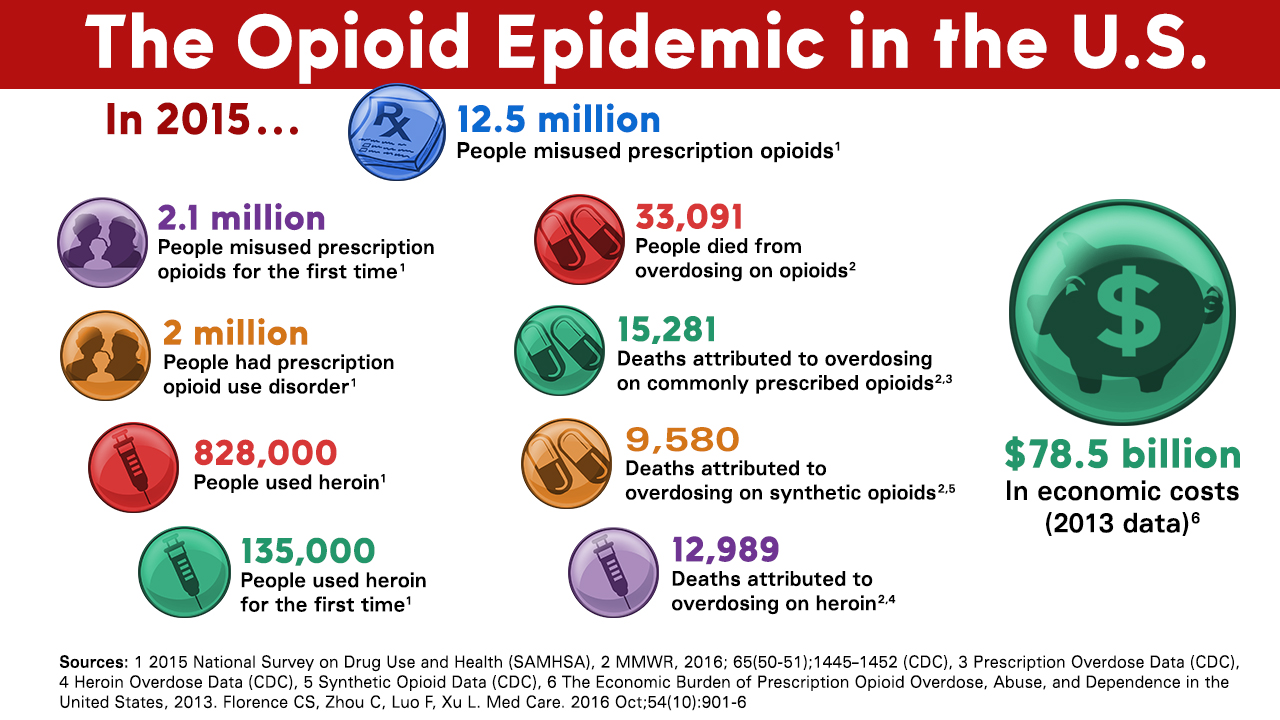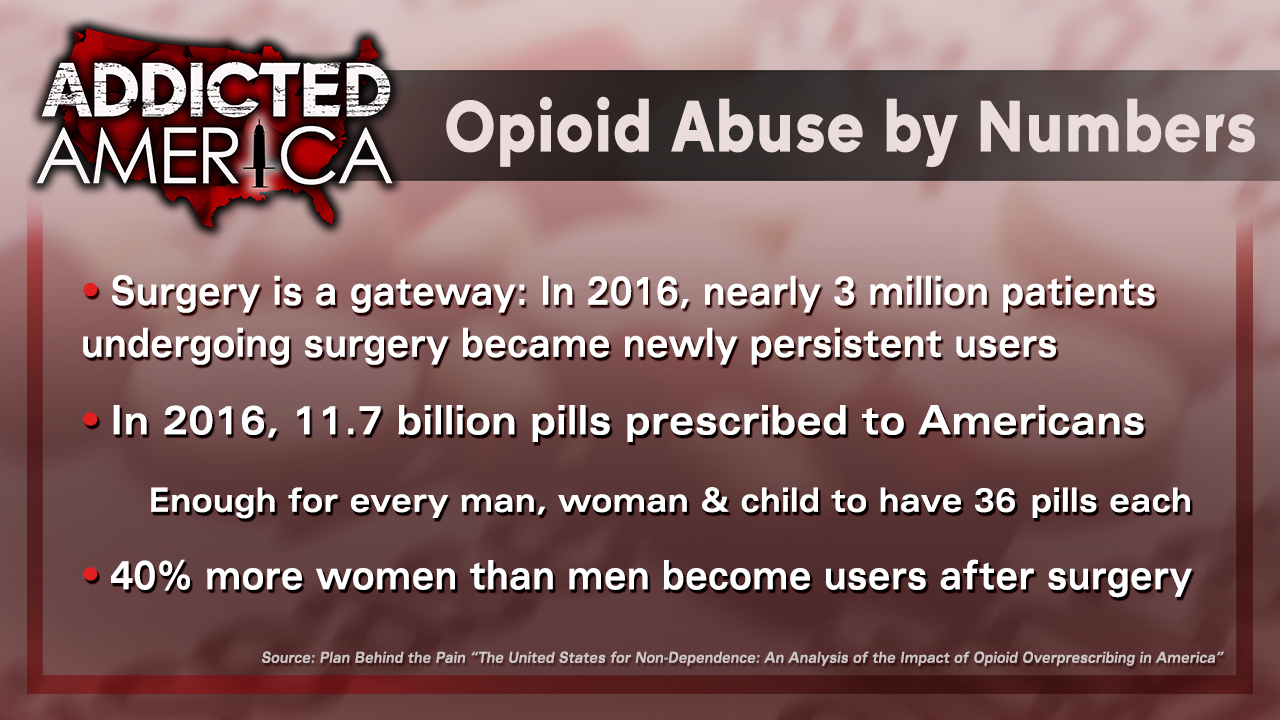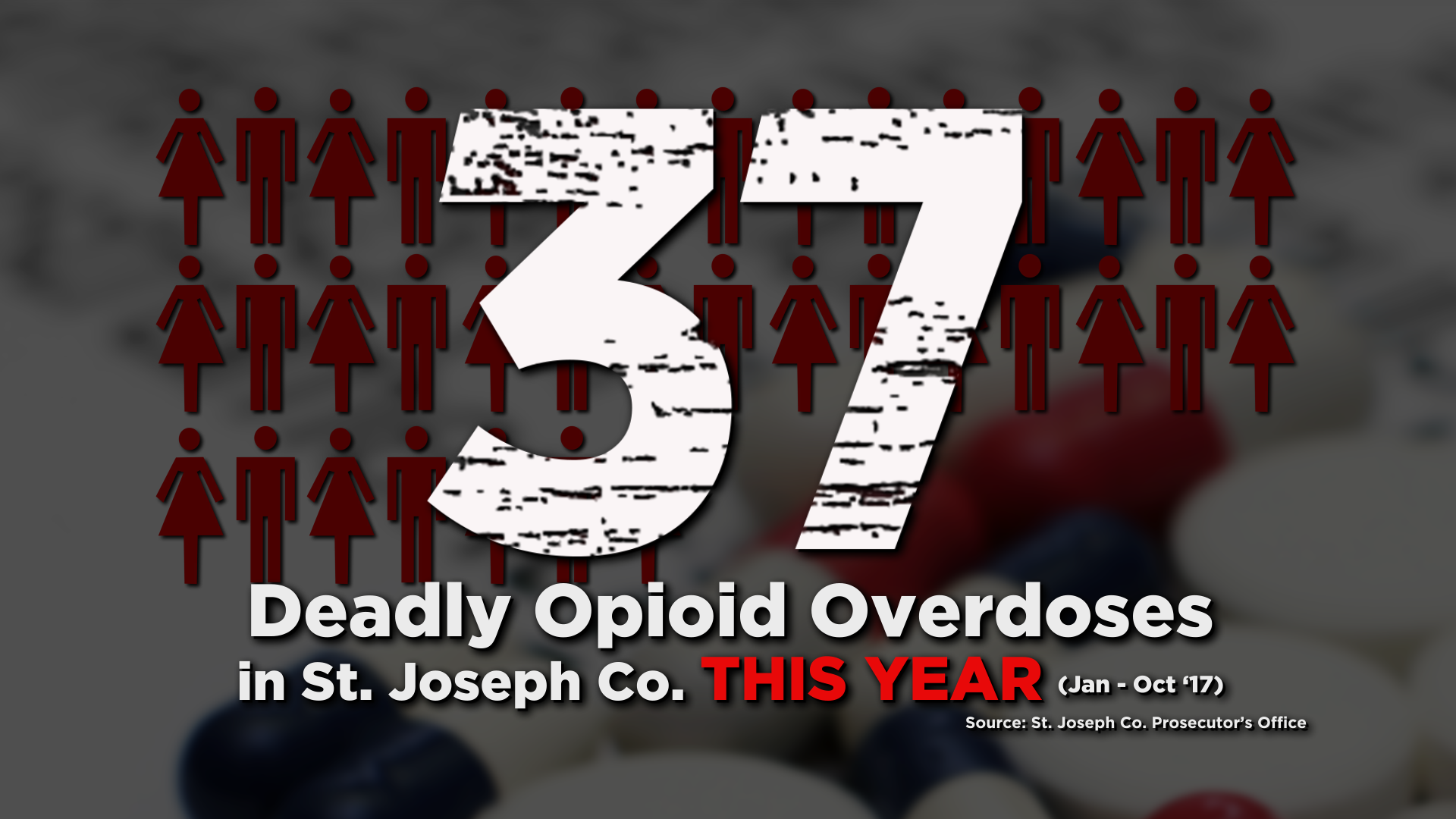Fighting on the Frontlines: Courtney's second chance
SOUTH BEND, Ind. -- At first glance, Courtney Roach is a typical suburban mom. But she's using her past, and the worst four years of her life, to help others, and prevent them from facing the same battles.
She's a wife and mom of three little girls.
Some may even call her a suburban stereotype.
When ABC57 News met Roach, she had just picked up one of her daughters from band practice, and was spending the rest of the fall afternoon, decorating their home for Halloween.
But seven years ago, her life wasn't so picture perfect.
"The amount of medication I was on, like, I look back on it today and I don't know how I was functioning," says Roach. "I don't think I was functioning."
She struggled with an addiction that she says, was fueled by her doctor's recommendations.
Her doctor prescribed her pain medication for problems with her back and hip.
Norco was the first prescription she received, but it was just the start.
Roach started having seizures, which her doctor decided to treat with anti-seizure medication and Xanax.
"I know I was abusing them, but at the time, I was in pain. And the doctor said I was in pain," she explains.
Her constant pain and health problems resulted in her doctor upping her doses.
"I ended up on the strongest milligrams of Percocet in just a couple of months," says Roach.
Soon, even that powerful drug cocktail just wasn't enough.
She said, she needed more.
"I couldn't live without them. I couldn't get up in the morning and feel okay," describes Roach. "I couldn't live without taking them."
Her dependency then headed in a different direction.
She tried meth and heroin.
"[Heroin] blocked all of my pain. It blocked everything out," she says.
The young mom was on three different prescriptions, in addition to heroin.
But Roach says she was a functioning addict, and hiding it from her family.
"They were mommy's medicines, so that was never really a question of why they were in my purse. Or why they were in the bathroom," she explains.
Despite it all, she never looked the part.
"I never got to the real point of looking like the stereotypical addict," says Roach. "I was a country mom with two kids and a job."
She found herself in jail several times during her downward spiral.
Roach also lost custody of her children.
That still was not a wake up call for her.
"Getting out of jail that time,I went straight to the doctor and they gave me my prescriptions right back," she says.
Roach explains it was easy to get the medications.
"The looked at my medical records and said, 'you've got something seriously wrong with you, you need pain meds, you're in pain." she recalls.
But Roach isn't alone.
According to a study by Plan Behind the Pain, women received 30% more opioid prescriptions then men.
Another staggering statistic: middle-aged women, aged 40-59, were the top recipients of opioid prescriptions.
Roach says her experience has ruined her relationship with healthcare professionals, and doesn't go to the doctor anymore.
Despite being the granddaughter of a doctor, she is skeptical and cautious.
"Unless you have a life threatening disease or something really horrible, I don't think we should be on all of these prescriptions," she says.
Those prescriptions resulted in a four year long struggle for Roach.
Four years of struggling to survive, and finally remaining clean and sober.
Now, her life is completely different.
"Addition is real and it can affect anybody," Roach says knowingly.
With her sobriety, comes a passionate desire to fight this crisis, choking the country.
"If I could change just one person's life and get them out of it, it would be great," says Roach.
She shares her testimony in churches across the South Bend area, and joined a group aimed at giving women some much needed support.
"It's called the Daughters of Naomi Embraced," she explains. "We're a women's group. We mentor other women and try to build them up, while trying to build ourselves up."
Roach is hoping with education, she can change the future for other women and for her little girls.
"I don't want them to go through thing we went through. I don't want them to struggle with the things we struggled with," she says.
Because she knows her story, can serve as a warning.
"I know my addiction started with prescription medications," says Roach. "To say I would have been addicted to meth and heroin without them? I don't know if I could say that."


















